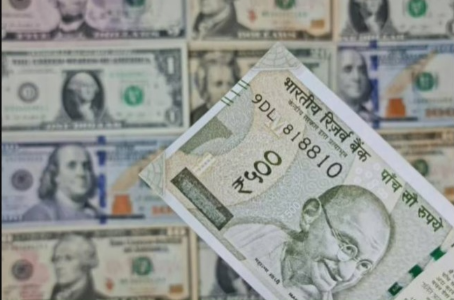Ban crypto-currencies, no exceptions
Without ‘ifs or buts’, crypto-money fuelling speculation, online frauds, financing drug trade and terror through dark web be shut
Total Views | 172
India is not one of those Baltic republics where economic governance structures are either weak or non-existent. Neither is India run on exotic market instruments as is the case with a few European economies and the US. Indian economic management is also distinctly different from ‘commanding heights’ oligarchs that control communist regime in China. Since India has its own thinking on economic and development issues and a population of 1.4 billion, the country may have to chart its own course on key issues like crypto-currencies.
Prime Minister Narendra Modi’s meeting with various stakeholders last week, finance minister Nirmala Sitharaman and Reserve Bank of India’s governor Shakti Kanta Das have outlined India’s policy towards crypto-currency mania that continues to sweep several geographies like a storm.
In the Indian context, it’s not desirable to introduce or legalize crypto-currencies. Block chain-based technologies may have other financial sector applications that can definitely be pursued for digitizing Indian economy. No one has an issue with exploring the full potential of blockchain technologies. But, one cannot make cryptocurrencies, legal tender. Neither can crypto-currencies be treated as an asset that can be held, transferred or traded on market platforms or on the dark web, legally or illegally.

It does not matter as to what’s the intention of countries like El Salvador in creating an exclusive crypto-currency city. India cannot afford to gamble on crypto-currencies with which even advanced market-based economies like the US are to come to terms. Union cabinet’s decision after several rounds of stakeholders’ consultations is significant as it seeks to ban all private cryptocurrencies.
Simultaneously, the Narendra Modi government’s move to introduce digital rupee beginning next year is precursor to digitizing US $ 3.08 trillion strong Indian economy. Digital rupee to possibly be introduced by RBI will be backed by sovereign assets and guarantees like any other banking instrument or paper. Digital currencies as legal tender have been contemplated by several central banks around the world.
Even as Parliament’s winter session began on Monday, lobbies continued to work behind the scenes to push government towards either status quo on crypto-currencies or their weak regulation. These lobbies must be shown their place. Modi government need not be either apologetic or apprehensive about its decision to slap a complete ban on private crypto-currencies. In the sense, holding cryptos, their transfer and trading become an illegal activity and punishable under statute. This measure would also insulate Indian economy and markets from possible destabilization due to these speculative instruments.
RBI governor Shakti Kanta Das has rightly pointed to ‘instability and economic gloom that crypto-currencies would ring in for India. The ban in itself cannot be viewed as the Modi government being anti-reforms or new-age technologies. For the youngsters that are high on blockchain-based trading of crypto money on unregulated exchanges or dark web, the decision may be a wee bit unsettling. Retail investors in India that reportedly are over15 million with exposures up to US $ 6 billion on crypto speculations may be better off with protective cover of the state.
Given that crypto-currency transactions cannot be brought under either banking regulator RBI or markets watchdog, Securities Exchange Board of India (SEBI), the best possible option exercised by government is to ban them. Hence, these crypto-currencies-related transactions cannot be taxed as well. Apart from validity or valuation issues, crypto-currencies misuse leading to serious security issues is what Prime Minister Modi hinted while chairing a meeting of stakeholders, bankers and investors last week. For instance, Enforcement Directorate has pointed to about Rs 4000 crore worth funds routed through crypto-transactions to launder ill-gotten funds by economic offenders. Can we open another channel for tax evaders, corrupt people and traders to legitimize their ill-gotten wealth?
A recent study of Paris-based Financial Action Force (FATF) flagged 56 million illegal transactions on one crypto exchange named Liberty Reserve that was busted by US enforcement agencies. Liberty Reserve is just one of such exchanges whose numbers run into thousands and enable illegal transactions in billions. Crypto-currencies and exchanges by design do not allow for any regulation or enforcement and operate outside of banking channels in most geographies including India where banks wisely kept off from such operations.
Terror financing by Pakistani outfits, Afghanistan’s Taliban and jihadists apart from Church using crypto-currencies were reportedly flagged by government officials in internal discussions. United Nations Centre for Counter Terrorism (UNCCT) had been pushing for a workable framework to prevent use of digital money including crypto-currencies to finance terrorist activities globally.
Crypto-currency and Regulation of Official Digital Currency Bill 2021 to be piloted by Finance Minister Nirmala Sitharaman in the on-going winter session of parliament may have to take 360 degrees view and ban the crypto-currencies without exceptions. SEBI panel has rightly pointed out that since there are no underlying assets, crypto-currencies cannot be bracketed as a class of assets like stocks, debt paper, legal tender, real estate or commodities. Even in most advanced economies like US, the banking regulators are yet to make comprehensive plans on crypto-currency while some states have gone ahead with their set of rules.

Federal Reserve in US, Federal Deposit Insurance Corporation and Comptroller of Currency may take the entire 2022 to chart a plan for crypto-currencies. While China has gone ahead to ban crypto-currencies beginning with issue of coins, all mining operations were shut down to safeguard its small investors. In contrast, European Union’s 27-members group have differential regulations on cryptocurrencies and digital coins. European Union Parliament is struggling and may take a year to frame commonly applicable rules and regulations on crypto-currencies.
Most astonishingly, there has been a deluge of large advertisements on varied media platforms in India pushing for crypto-currencies. In these full-page pull-outs, numbers on retail investors are outright fudged and investment values incorrectly stated. A strong crypto-currency lobby globally seems to have been at work. This has made even flagging concerns on these speculative rogue instruments as anti-liberalization and those opposed to free markets. This may not be true.
After the crisis of the global market of 2008-09, saving the economic policymaking from the jingoist market mindset is very much a necessity. British economists like Diane Coyle see even the existing market instruments as a distorting force that deepen inequality apart from giving a bad name to market economic policymaking.
Let’s keep away from exotic crypto-currency mania that’s unsustainable and not our priority anyway.






